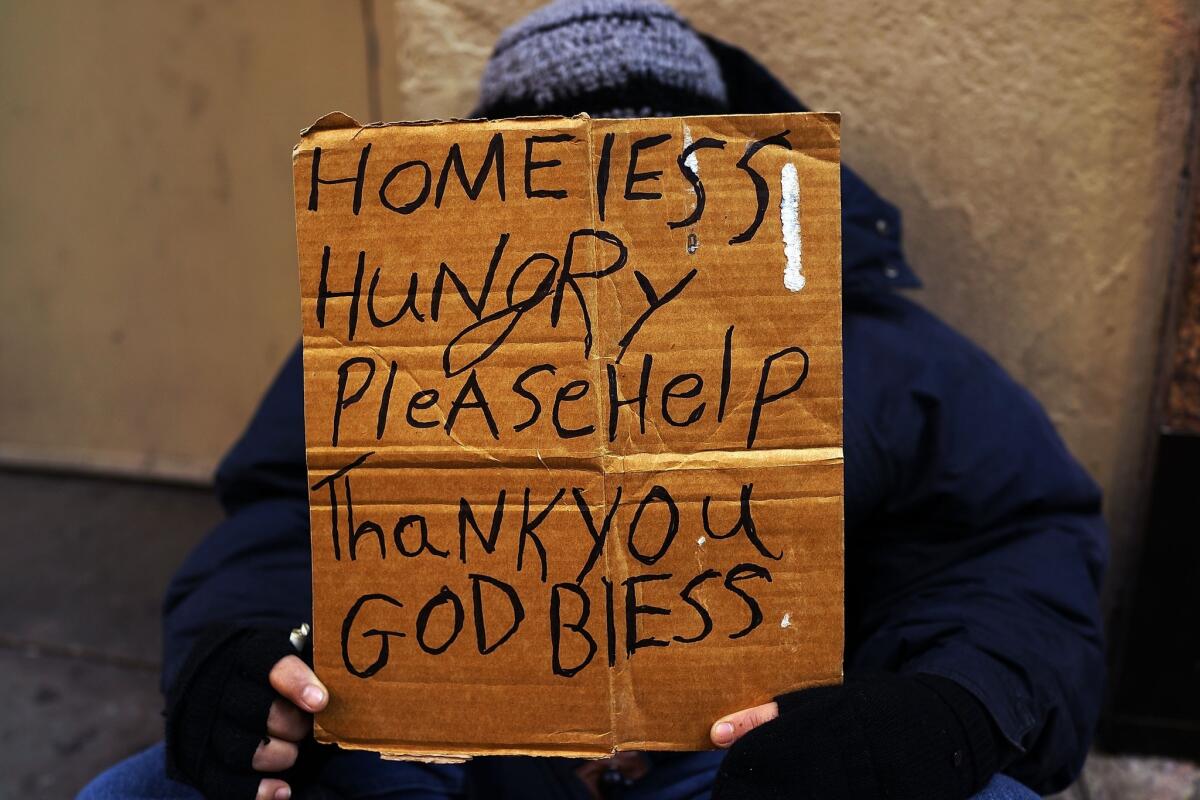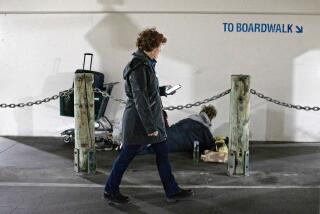Recession led to longer bouts of poverty, Census Bureau says

- Share via
During the tail end of the recession and its aftermath, nearly a third of Americans suffered bouts of poverty lasting two months or more, the U.S. Census Bureau found in a newly released report.
It’s little surprise that more Americans endured such episodes than before the economic slump. Spells of poverty also lasted longer after the downturn. (The National Bureau of Economic Research defines the recession as the period from December 2007 to June 2009.)
Among Americans who spent at least two months in poverty between 2009 and 2011, the median spell of poverty lasted more than 6 1/2 months -- nearly a month longer than between 2005 and 2007, the report found. Some Americans struggled even longer to shake off poverty, especially African Americans, the elderly and single mothers.
When someone loses their livelihood, “time is of the essence,” said James X. Sullivan, University of Notre Dame associate professor of economics. Middle-class families may run out of assets. Job seekers encounter mounting stigma.
“The longer you’re in poverty, the more dire the situation gets,” Sullivan said.
Between 2009 and 2011, 15% of such bouts of poverty lasted more than two years.
For most Americans, however, poverty came and went more quickly: The Census Bureau estimated that 44% of such cases ended within four months.
But while millions of people escaped poverty in the years after the recession, just as many people tumbled into it, the report found. And nearly half of those who emerged from poverty remained at meager incomes, earning less than 150% of the federal poverty threshold.
“The fact that someone comes out of poverty for a few months should not lead us to conclude that poverty is not chronic,” said Ann Stevens, director of the UC Davis Center for Poverty Research. Though only 3.5% of Americans were poor throughout the entire period from 2009 to 2011, Stevens said, other research suggests many more bobbed in and out of poverty.
On the edge of Skid Row in Los Angeles, Al Sabo said his typical income from Social Security put him just above the poverty line. The retired writer and editor, 65, first sank into poverty more than a decade ago, after a serious illness left him in a lengthy coma and drained his savings, he said.
“The government said they overpaid me, so I’m probably back down below the poverty line,” Sabo said. But even when he’s above it, he says, he lives virtually “paycheck to paycheck.”
Periods of poverty were especially common among the young between 2009 and 2011: More than 40% of children had been through a bout of poverty, compared with nearly 16% of the elderly and 31% of younger adults, the report found. Experts said the toll on children was especially worrisome in light of burgeoning research on how economic stress shapes growing brains.
While the elderly were less likely than children or younger adults to slip into poverty, they endured it longer when they did become poor. Blacks also suffered longer spells of poverty than whites or Latinos. And households led by unmarried women were also at higher risk. While they made up less than 15% of the population, they accounted for nearly 43% of the chronically poor.
More to Read
Sign up for Essential California
The most important California stories and recommendations in your inbox every morning.
You may occasionally receive promotional content from the Los Angeles Times.











